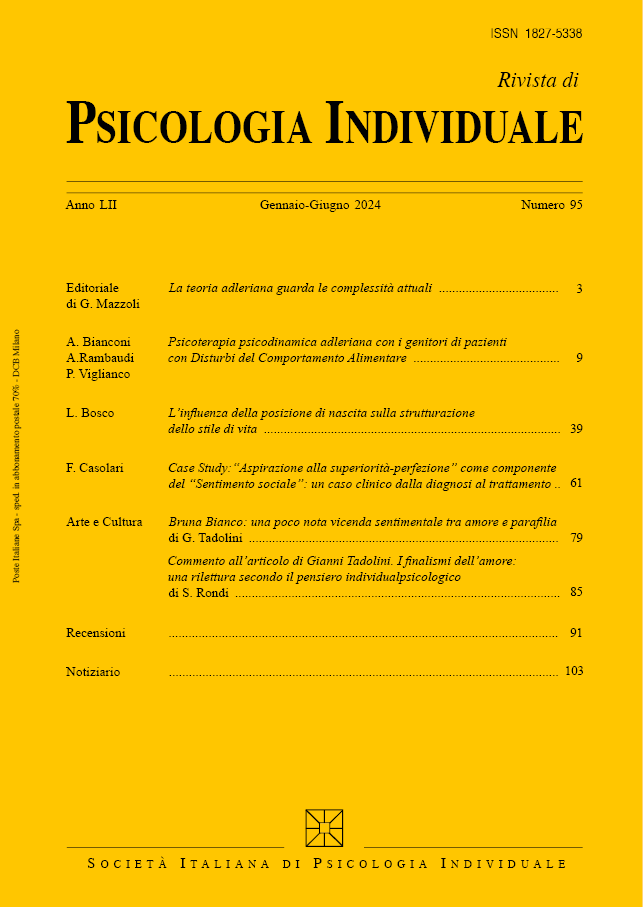What does it mean today to call oneself an Adlerian
Keywords:
behaviorism, ascending dynamics, Feyerabend's anarchic epistemology, finalism, encouragement as positive reinforcement, holism, opinion of oneself and the world, creative power, clinical psychology, projective psychology, psychotherapy, scientific nature of psychoanalysisAbstract
1. The pluralism of schools of clinical psychology and psychotherapy proves their only partial validity. Since we can't just assume that different psychoanalytic ideas are all true, it's a good idea to test them with experimental psychology research that uses statistics, so we can judge how valid they are without getting caught up in how good the psychotherapist is.
2. Individual Psychology does not belong to depth psychology—an assumption not shared by the Italian School (see preliminary note)—because it operates outside the theory of libido, because the unconscious collaborates with the conscious and has its own creative power, and because the defense mechanisms of the ego are better placed in “projective psychology.”
3. IP, at least on an operational level, is closer to behaviorism because: a. Adlerian encouragement can be likened to positive reinforcement; b. some of its techniques (Dreikurs) can be traced back to the principles of learning; c. behaviorist techniques can be introduced into an Adlerian therapeutic plan; d. the purpose of the symptom is unknown to both schools and is not, in any case, an expression of a conflictual dynamic.
4. Adlerianism can be considered the leader of humanistic psychologies as long as one remains within a dual treatment, but it transcends them in group and applied psychology. It is the father of a particular way of conceiving man and his problems. 5. The fundamental principles of PI (Adler 1937) are: a. the unity and internal consistency of the personality because all actions and ideas are directed toward the same goal; b. when faced with changing problems, the individual always behaves according to the opinion he has formed of himself and the world; c. people are guided towards a goal by a bottom-up dynamic and, only in the event of failure, by feelings of inferiority; d. an innate sense of community drives them to cooperate and love one another; e. people are unique and creative (Adler 1937).
6. Lifestyle is the central concept of modern Adlerianism. It can be broken down into an apperceptive pattern (modus vivendi) and a behavioral pattern (modus operandi) and serves as a diagnostic tool that allows the personality to be studied according to preordained patterns






